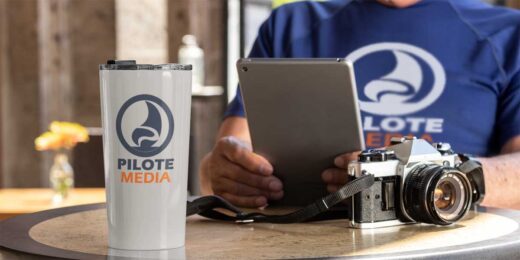A couple of years ago I took part in a trade mission organised by the Motorsports Industry Association in the UK to visit the land of NASCAR. Standing in the garage area of Lowes Motor Speedway in Charlotte amongst a group of people who were used to the paddocks of F1, I realised that people in the business of sport often take their experiences for granted.
Between the garage area and the track, which was open to the public before the race, was an 8 foot chain-link fence. As our group casually ran our hands along the sponsor decals and listened to Jeff Gordon tell us how he thought the car would perform later, hundreds of fans pressed their faces through the chain-link fence, desperate to get a few inches closer to their heroes.
Our goal then was to convince NASCAR and others that fans treated the smallest piece of inside information from their sporting idols as gifts. We called it ‘pub-currency’ – the kind of thing you would tell your mates about while having a beer. Getting a text message from a driver or a photo that no-one else had via your PC desktop was something that sports-marketers wrote off as insignificant, but for fans, it was like standing in the garage or dressing room.
In 2009, the ability for sports stars to communicate ‘directly’ with fans is easier than ever. While some tools, like twitter, are still relatively niche, they are being used by savvy sports marketing people to give fans something they crave – frequent, direct interaction with heroes.
But that’s not all. Tools like blogs and twitter enable sponsors to develop long term relationships with consumers. The lesson we learned from NASCAR and later from Manchester United was that communication in the off-season was as important, if not more so, than news during an event.
So, I have declared my interests. I am passionate about using new and emerging technologies to enable brands to develop long term relationships with fans through sport. One of the reasons I set up yachtsponsorship.com was to communicate with promoters, teams and sponsors, the best practises from other sports and show they can be used with sailing to deliver real ROI.
The last couple of days, I have been researching how sailing as a sport uses these new technologies. The results vary massively, but in general there is a trick being missed, especially when there is nothing going on. During long distance races like the Vendee Globe, competitors were forced by race organisers and sponsors to blog daily, but now their websites are like time-capsules – as if the clock stopped a couple of days after the boat crossed the line. How can we build heroes in the sport if they go silent for months on end?
Here are some examples from the UK. Ben Ainslie, one of the most recognisable personalities in the sport, last updated his blog on the 13th of February. The last update on his facebook page was August 20, 2008. Alex Thomson, who is said to embrace new technologies last updated his blog on February 9, while his facebook page was updated on 10 December 2008 by an administrator.
Thank goodness for Paul Cayard. Paul is one of the sailors who writes regualarly and candidly – even when he is not neccesrily competing. This weekend, Paul was in Boston for the Volvo Ocean Race stopover. I know this because his blog tells me:
This event is really catching on with the mainstream public. It seems that anyone who gets a close up look at the event becomes hooked. There was a lot of non sailing public roaming through the race village this weekend and they immediately became intrigued. With the Race Village situated right down town, Volvo has really brought the event to the people.
Cayard has the best interests of the sport in mind finishing with:
I was speaking to a British sports marketing executive who was visiting the race for the first time, a guy who ran the marketing for Honda in Formula One previously, and he said that the Volvo is truly a top level sports marketing property. It was impressive to see the new faces, from other areas of sport, gravitating to the event.
I’m not sure if Honda F1 is the best example of sports marketing in recent years, but it’s good to know that finally the message is getting out there – that sailing at its best provides a great platform for sponsors.
Not all sailors have time to sit down and write blogs the length of Paul Cayard’s, but there is little or no excuse not to be able to shoot off 140 characters every so often.
Dee Caffari has joined twitter in the last couple of days, but the star of the Round Britain twitter comms so far is Johanna Payton, a journalist who is accompanying Dee on the journey. Maybe, just maybe it’s because Jo is new to the sport and has no preconceptions about what fans might find interesting. Maybe it’s because she doesn’t have to walk a corporate sponsor tightrope.
Perhaps the problem comes down to a question of demarcation. Who’s responsibility is it to develop and maintain a consistent online presence? Is it a PR job or is it up to the competitors themselves to manage their personal brands and get to grips with communicating with their fans? Should the marketing teams of sponsors be involved or are they they ones blocking uptake based on corporate ‘brand-police’ practises?
Several PR agencies that I have spoken to in recent days have told me that they have the tools in-house to provide these services to their clients. One referred me to a brand that they were managing a twitter account for – it has 30 followers! Others have said that they believe it is something that the competitors manage on their own.
The growing online presence of fans hungry for content shows that there is latent demand from fans for more interaction – and it’s not that hard. If you can find time to blog while sailing about in the southern ocean, you can find time to communicate when you are off the water.
Here’s the ad – I have worked with sports properties such as NASCAR, MotoGP and Manchester United as well as individual athletes to develop long term relationships with fans. These relationships are hugely important to deliver additional ROI for sponsors as well as maintaining the health of a sport. If the fans go away or stop watching, then the sponsors will follow. If you want to use some of these new tools to attract or retain sponsors or even just sure up a fan-base get in touch via Pilote Media.

